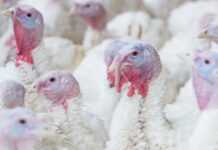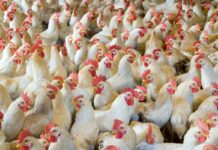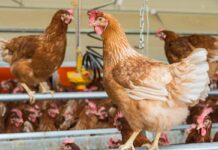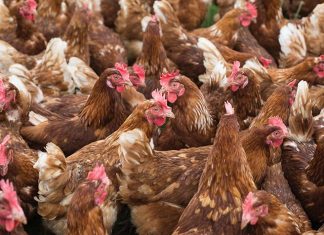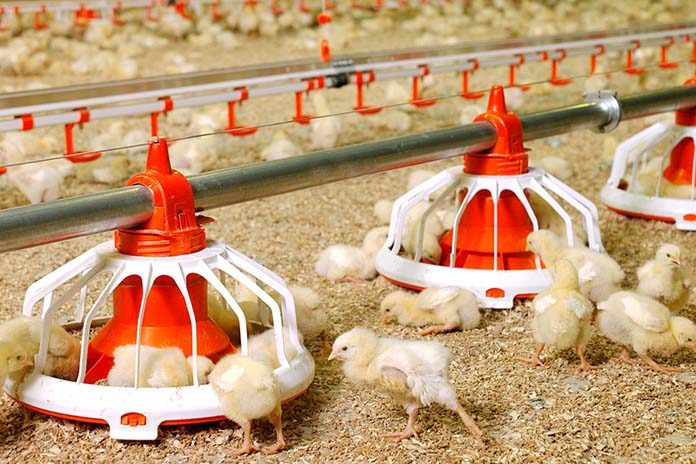
Data as a method of payment for better advice? According to Daniel Proetel, The Big Dutchman product manager for innovative software solutions, this concept might just be the near future. He provides a fresh perspective on the development of digitization and data exchange in poultry farming because of his experience outside of the agricultural sector.
What do digitization and data have to do with the agricultural sector and housing equipment?
“I was very surprised when Big Dutchman called me a year and a half ago, asking whether I wanted to work for them. I have mainly worked in information technology and telecommunication in the past and much experience in this area, so when Big Dutchman said that they manufacture products from plastic and steel, I wondered why they would need a computer technician like me. At that time, I did not know that animal husbandry, and poultry farming in particular, is so technical and produces so much data. That aroused my interest.”
“Many farmers write down information such as feed consumption or the number of veterinarian visits on batch cards and then send these cards as reports to the slaughterhouse. Digitization means that these processes can become much more efficient today. The farm staff simply uses their smartphone to note down the feed consumption. Thanks to immediate data exchange, the farmer can analyze this information in real time on his laptop and not only share it with the slaughterhouse, but also with his veterinarian. The veterinarian thus receives important information regarding medical treatment without actually having to be on the farm.”
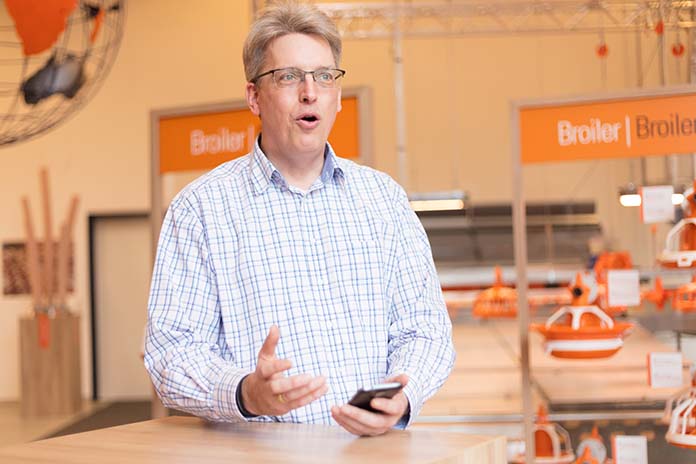
So there are still a lot of opportunities for the agricultural sector regarding digitization and data?
“Absolutely! Imagine this: the fill levels of your silos are continually shared with a feed mill. As soon as a fill level reaches a specific minimum, new feed is automatically ordered from the mill. Of course only after you have approved the order, and depending on conditions you have set up beforehand. This not only saves time and efforts, but also optimizes the production process. The motive of digitization and industrialization is no longer the optimization of processes, but the optimization of entire value chains.”
Where does the trend of digitization in the agricultural sector come from? Is there a need to go along with the digital development of other sectors?
“That depends on the market. In Germany, for example, which is a mature market with a high standard of living, more and more people care about animal welfare and public health. They want to know exactly where their food comes from. Digitization ensures that food is traceable. In other regions of the world, such as Asia, digitization is mainly used to optimize production.”
But is it not true that digitization is also used to optimize production in Europe?
“Yes, but the reason and the approach are different. In China and the rest of Asia, the main cause is growing prosperity. There is more demand for animal proteins and farmers want to produce as much of it as possible. In Europe, on the other hand, you also need to consider public acceptance and restrictive measures of authorities regarding animal welfare and the environment. So in Europe there is optimization within a specific framework. But there is also another aspect of digitization. In Europe, at least, we live in a time where food must be traceable throughout the chain and farmers must take into account the rest of the chain. For this, the various links in the chain must cooperate and exchange data. I am convinced that, at least regarding “Industry 4.0”, the motive of digitization and industrialization is no longer about optimizing processes, but about optimizing entire value chains. There is a lot of dedigitization on farms.”
In terms of digitization and data exchange, the agricultural sector has reportedly been lagging behind. What is the situation now, are we catching up?
“I would say that, in general, we have been lagging behind other sectors for about five years now, but that depends very much on where and how you look. When I started to work for Big Dutchman, I discovered that there was a lot of dedigitization on farms. For example, all kinds of digital systems collect digital data on the farm computer. And then a farmer uses a pen to add this data to a batch card. But then it often gets even worse, because next the farmer faxes the batch card to someone else, who in turn enters the data into the computer again! The important point here: you already have the digital data, so why waste a lot of time instead of simply using this data?”
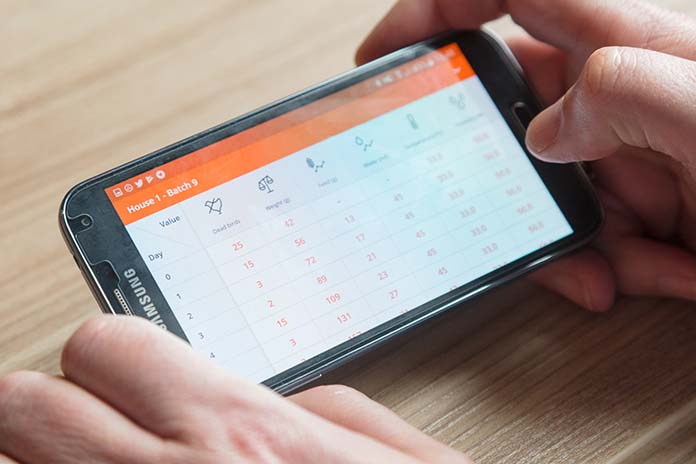
Why are farmers so careful with sharing their data?
“Because we have not yet been able to convince farmers that their data is safe in the agricultural value chain. I believe that data can contain a lot of secrets, such as company information that farmers do not want to share with others for all sorts of reasons. Nobody wants to share more than is absolutely necessary. Which is a pity, because data can be extremely valuable for the next steps in the value chain. But I also think that many farmers do not dare to look further for fear that their data might be abused. Farmers are not yet sufficiently aware of the benefits of digitization and data sharing. We noticed this, for example, in our search for test subjects for our FarmBookpro app, which gives poultry farmers insight into their own data. We wanted to take people with us on our ‘digital journey’ and to develop digital products together with them to optimize their business operations. This was very challenging, because you first have to convince the farmer that it makes sense to share data with other parties in the value chain, and that this yields value for all parties in the chain, especially for the farmer himself.”
How can we convince farmers that sharing data is useful, and reassure them that their data is safe, even with other parties?
“It starts with a certain basic understanding about the necessities, opportunities and possibilities of data exchange. We can develop incredibly impressive and technical solutions nowadays, but if you do not understand why you would need e.g. an app, then you do not know why you should use it or for what purpose. FarmBookpro is an app that provides poultry farmers with a simple way of documenting and analyzing their production.”


